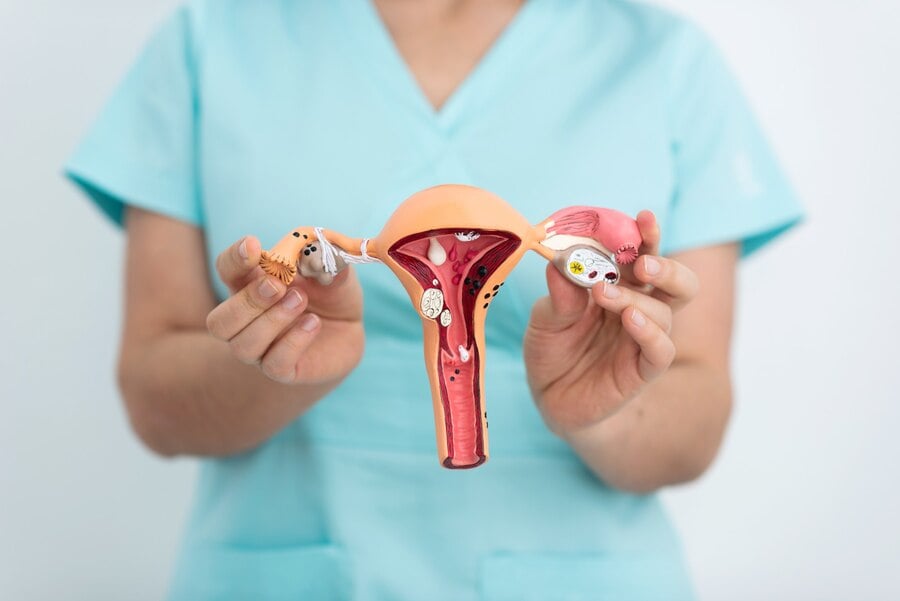“Women with endometriosis commonly experience intense menstrual cramps (dysmenorrhea) that worsen over time and can disrupt daily activities”
Endometriosis is a chronic reproductive health disorder characterized by the presence of endometrial-like tissue outside the uterus. Normally, the endometrium, the tissue lining the uterus, thickens and sheds during the menstrual cycle. However, in endometriosis, this tissue grows in other areas of the body, such as the ovaries, fallopian tubes, pelvic lining, and even organs like the bladder and intestines.
Endometriosis is caused by various factors including retrograde menstruation, genetic predisposition, immune system dysfunction, hormonal imbalances, environmental exposure, and lifestyle choices. It is often inherited and can spread through families.
Endometriosis manifests with a spectrum of symptoms, often varying in severity among individuals. A primary hallmark is chronic pelvic pain, typically exacerbated during menstrual periods, which may radiate to the lower back and thighs. Women with endometriosis commonly experience intense menstrual cramps (dysmenorrhea) that worsen over time and can disrupt daily activities. Painful intercourse (dyspareunia) is also prevalent, contributing to relationship strain and decreased sexual satisfaction. Heavy menstrual bleeding (menorrhagia) and irregular periods are common, sometimes leading to anemia. In addition to gynecological symptoms, endometriosis can affect bowel and bladder function, causing pain during bowel movements or urination, as well as gastrointestinal disturbances like bloating and diarrhea, especially during menstruation. Infertility or difficulty conceiving is another significant symptom, affecting approximately one-third to one-half of women with endometriosis.
Endometriosis is a complex and often debilitating condition that requires careful management and support. By raising awareness, promoting early detection, and advancing research, we can improve the quality of life for individuals living with endometriosis and work towards better treatment options and ultimately a cure. If you suspect you may have endometriosis or are experiencing symptoms, don’t hesitate to consult with a healthcare provider for proper evaluation and management.



